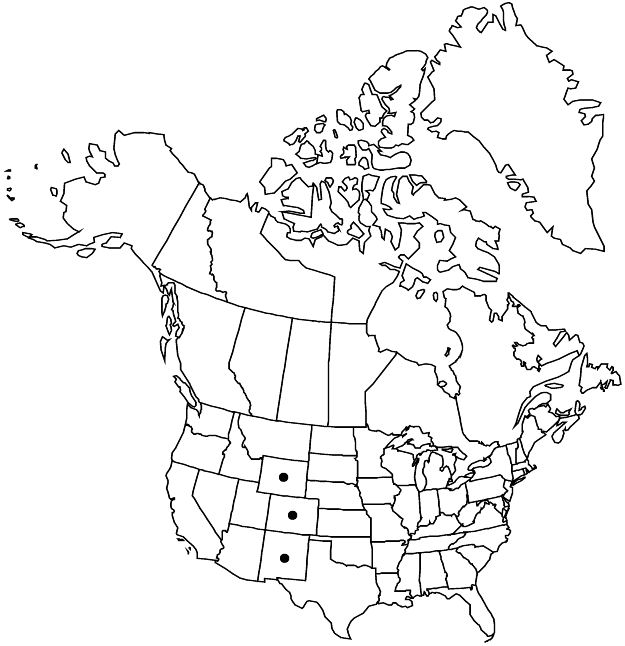Difference between revisions of "Potentilla ambigens"
Erythea 1: 5. 1893.
imported>Volume Importer |
imported>Volume Importer |
||
| Line 56: | Line 56: | ||
|publication year=1893 | |publication year=1893 | ||
|special status=Conservation concern;Endemic | |special status=Conservation concern;Endemic | ||
| − | |source xml=https:// | + | |source xml=https://bitbucket.org/aafc-mbb/fna-data-curation/src/2e0870ddd59836b60bcf96646a41e87ea5a5943a/coarse_grained_fna_xml/V9/V9_239.xml |
|subfamily=Rosaceae subfam. Rosoideae | |subfamily=Rosaceae subfam. Rosoideae | ||
|tribe=Rosaceae tribe Potentilleae | |tribe=Rosaceae tribe Potentilleae | ||
Latest revision as of 22:55, 5 November 2020
Stems (2–)3–7(–8) dm, lengths (1–)1.5–2.5 times basal leaves. Basal leaves pinnate, 15–45(–50) cm; petiole (5–)8–20 cm, long hairs abundant to dense, ascending to appressed, (1–)2–3 mm, ± stiff, rarely weak, short or crisped hairs absent or sparse, cottony hairs absent, glands sparse, often obscured; leaflets not conduplicate, lateral ones evenly paired, (3–)4–7 per side on distal ± 1/2 of leaf axis, most pairs ± decurrent, rachis winged, distal sometimes confluent with terminal leaflet, larger leaflets narrowly obovate, (2–)3–7 × 1–2.5 cm, distal 3/4+ of margin incised 1/3 to midvein, teeth 6–18 per side, 1–4 mm, surfaces ± similar, abaxial grayish, long hairs sparse to common (mostly on veins), 0.5–2 mm, ± stiff, rarely weak, short-crisped hairs absent or sparse to common, cottony hairs absent, glands sparse to common, adaxial green to grayish, long and short hairs not differentiated, sparse to common, crisped and cottony hairs absent, glands absent or sparse. Cauline leaves (0–)1–3. Inflorescences (10–)20–60-flowered. Pedicels (0.5–)1–3(–6) cm. Flowers: epicalyx bractlets lanceolate to narrowly ovate or elliptic, 3–6 × 1–1.5 mm, 2/3 as long as to nearly equal to sepals, abaxial vestiture ± similar to sepals, not glabrescent, straight hairs sparse to common, crisped or cottony hairs usually absent; hypanthium 3–6 mm diam.; sepals 4–7 mm, apex acute to acuminate; petals (6–)7–10 × 5–9 mm; filaments (1–)1.5–4 mm, anthers 0.7–0.9(–1) mm; carpels 20–30, styles (1–)1.8–3 mm. Achenes 1.4–1.6 mm, smooth. 2n = 82.
Phenology: Flowering summer.
Habitat: Dry meadows and adjacent slopes, in conifer woodlands
Elevation: 2000–2700 m
Distribution

Colo., N.Mex., Wyo.
Discussion
Of conservation concern.
Potentilla ambigens is one of the more distinctive species in sect. Leucophyllae, comprising exceptionally large plants with large, coarsely hairy leaves. Although sometimes confused with P. hippiana, P. ambigens lacks the crisped-cottony vestiture of that species and is usually morphologically distinctive even where both species occur together (D. G. Anderson, www.fs.fed.us/r2/projects/scp/assessments/potentillaambigens.pdf).
Potentilla ambigens occurs in Wyoming (at least historically), along the eastern slope of the Rocky Mountains to northern Colorado, and in scattered locations in the high mountains of New Mexico as far south as the Sacramento Mountains, Otero County. The species is of conservation concern in Colorado and has not been documented in Wyoming since 1900 (D. G. Anderson, www.fs.fed.us/r2/projects/scp/assessments/potentillaambigens.pdf).
Selected References
None.